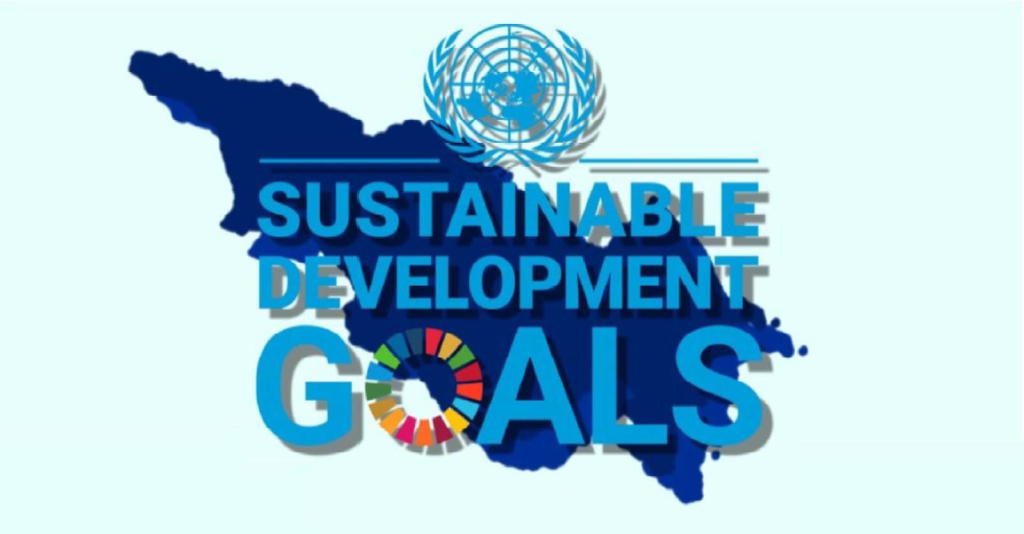Highlight 14/2024 – SDG Progress and the pathway to Agenda 2030 by the Caucasus States
Nurshan Tahmazova, 17 April 2024

The 2030 Agenda for Sustainable development has been adopted by all members of the United Nations in 2015 and consists of 17 SDGs and 169 targets. The aim of this process is to improve on the Millennium Development Goals and create new agenda. There are three dimensions to successfully transform to a sustainable world: economic, social and environmental aspects. SDGs work towards equality, empowerment, protection of human rights, eradicating poverty, protecting nature, etc., to ensure that the transformation to a sustainable path is comprehensive and inclusive. It is understandable that the economic, social and political differences between regions may interrupt the flow of the 15-year plan, however, every region has its own speciality in the 17 SDG goals that they can easily reach and vice versa. In this highlight, I will be specifically focusing on the Caucasus States’, more specifically, Azerbaijan, Georgia and Armenia’s ability to fulfil the SDG goals by 2030.
According to the recent 2023 Sustainable Development report, all three of the above-mentioned states have been proceeding with steady progress. Georgia ranks the highest at 42nd place globally, followed by Azerbaijan at 53rd place and lastly, Armenia in 56th place. For developing states that are facing security issues, it is impressive to see the Caucasus states rank after European states, which were at the top; however, to reach the SDGs by 2030, progress must be accelerated.
As mentioned before, every state has specific indicators and factors that they excel at and must improve. In Georgia’s case, a $59.3 million budget has been allocated for the SDGs. Most of this budget (17.3%) goes to SDG 16 Peace, Justice and Strong Institutions, whereas the least amount (0.4%) goes to SDG 7 Affordable and Clean Energy. Georgia has made notable progress with SDG 3 Good Health and Well-Being and SDG 9 Industry, Innovation and Infrastructure. Maternal mortality and child birth has decreased almost by half since the 2000s and since 2017, passengers traveling by air transport has had a massive decrease. On the other hand, Georgia should focus more on SDG 8 Decent Work and Economic Growth and SDG 10 Reduced Inequality, as these have seen little progress compared to the other sustainable goals.
Moving on to Azerbaijan, a $25.8 million budget has been set aside for the SDGs. Most of this budget (16.1%) goes to SDG 4 Quality Education, whereas the least amount (0.2%) goes to the SDG 9 and SDG 12. Azerbaijan has made remarkable advancements in SDG 1 No Poverty and SDG 4 Quality Education. Only, 0.1% of the nation’s labour force, including their families, were estimated to be subsisting on less than $1.90 per person/per day in 2022, and participation of children in primary education rose from 15.8% to 83.8% in the past 20 years. Yet, Azerbaijan should invest more in progress on SDG 16, as improving governance will assist in its transition towards becoming a developed state.
Lastly, a budget of $11 million has been resourced for SDGs in Armenia. Most of this budget (16.7%) goes to SDG 16, while the least amount (0.5%) goes to SDG 6 Clean Water and Sanitation. Over the past years, Armenia has been improving in SDGs 2 and 3. Armenia has also almost halved the child and maternal mortality, as well as reduced poverty from 25.7% to 2.5%. However, there is still room for improvement as there is limited time to reach the goals and turn into a sustainable state, with special focus on SDG 8 Decent Work and Economic Growth and SDG 4.
Caucasus as a region is improving and developing, and with the help of international, regional and local organizations, projects are being implemented for continued progress towards the success of Agenda 2030.
Nurshan Tahmazova, Highlight 14/2024 – SDG Progress and the pathway to Agenda 2030 by the Caucasus States, 17 April 2024, available at www.meig.ch
The views expressed in the MEIG Highlights are personal to the authors and neither reflect the positions of the MEIG Programme nor those of the University of Geneva.
